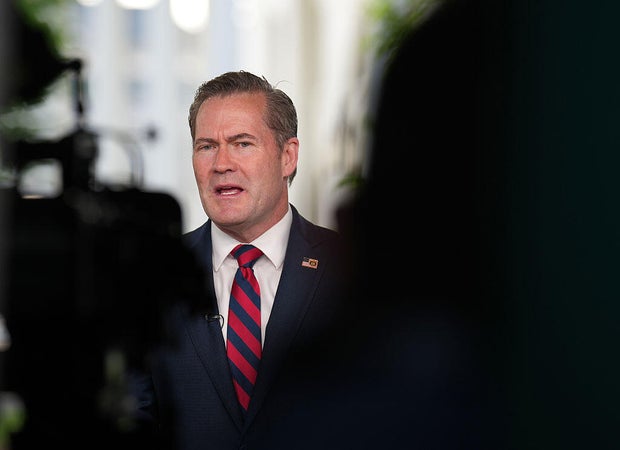Washington — President Trump’s pick to be U.S. ambassador to the United Nations, Mike Waltz, is set to testify Tuesday at his Senate confirmation hearing, the first time he’ll publicly face questions from lawmakers about his role in a Signal chat in which top administration officials inadvertently disclosed sensitive details about a military strike in Yemen.
The Senate Foreign Relations Committee hearing is scheduled to begin at 10 a.m., and Democrats have said they expect it will be “brutal” for Waltz.
The role — the last of Mr. Trump’s Cabinet to be confirmed — has been vacant for six months, leaving the U.S. without a top representative on a major world stage as several international crises play out.
If confirmed, Waltz would take the position as Mr. Trump’s frustrations increase with Russia over its refusal to end its war in Ukraine and as the U.S. seeks to manage tensions with China and Iran.
Waltz was ousted as Mr. Trump’s national security adviser in May, weeks after the editor in chief of The Atlantic, Jeffrey Goldberg, revealed that he had unexpectedly received a connection request on the encrypted messaging app from a user with Waltz’s name. Defense Secretary Pete Hegseth shared sensitive details of an upcoming military operation in the chat, which included others like Vice President JD Vance and Secretary of State Marco Rubio.
The story ricocheted through Washington, with Democratic lawmakers demanding an investigation into why highly sensitive information was being discussed on a commercially available messaging app, rather than secure government channels.
Administration officials acknowledged the conversation was “sensitive” but denied that the operational details shared in the chat were classified. Waltz admitted that he created the chat, but denied knowing how Goldberg’s contact information got into his phone.
Sources previously told CBS News that Waltz’s nomination for the ambassador role, a high-profile post in New York, was a last-minute decision by the president, and that the Signal controversy was one of the factors that led to his departure from the National Security Council.
Mr. Trump named Waltz as his national security adviser, a position that does not require Senate confirmation, days after the Florida Republican was reelected to a fourth term in Congress. The pick cut into Republicans’ narrow majority in the House and Speaker Mike Johnson, a Louisiana Republican, pleaded with Mr. Trump not to poach any more members for administration roles.
The slim majority stalled Mr. Trump’s first choice for U.N. ambassador, Republican Rep. Elise Stefanik of New York. When nominating Waltz, Mr. Trump said he had asked Stefanik to remain in Congress, where she could help advance his legislative agenda.

